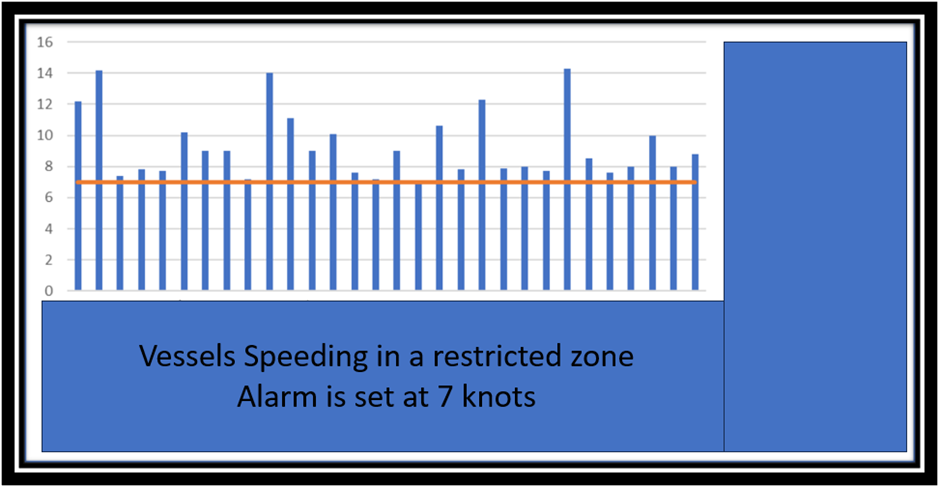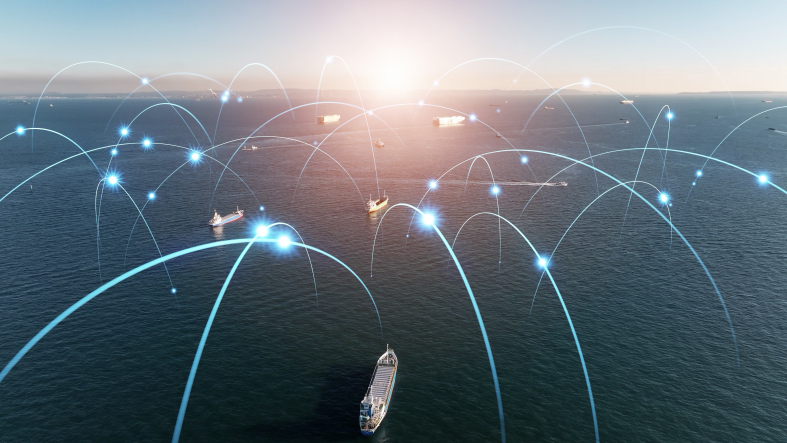These zones may include sensitive marine ecosystems, areas with high traffic congestion, or regions close to populated coastlines. Speeding in these zones can result in collisions, increased noise pollution, and disruption of delicate ecosystems, affecting marine life and coastal communities. With our Marlin Application Suite, we can assist you in identifying the vessels that breach these rules:
In Figure 1, you can see several vessels that have breached the speed limit within a critical zone.
Figure 1 - 7Knots speed limit

Figure 1 - 7Knots speed limit
The Emissions Conundrum: Impact on Air and Water Quality
One of the significant consequences of offshore vessels breaching speed limits is the increase in emissions. Marine diesel engines release pollutants such as sulfur dioxide, nitrogen oxides, and particulate matter. When vessels speed, their engines work harder, releasing more harmful substances into the air and water. This contributes to air pollution and the acidification of marine environments, endangering marine species and compromising the overall health of our oceans.
Striking a Balance: Efficiency vs. Environmental Responsibility
As offshore industries face increasing pressure to meet deadlines and maintain profitability, the temptation to breach speed limits can be strong. However, it is crucial for stakeholders to recognize that environmental responsibility and efficiency are not mutually exclusive. Investing in advanced vessel technologies, such as hybrid or electric propulsion systems, can reduce emissions and fuel consumption while still ensuring timely completion of tasks.
Regulations and Enforcement: The Need for Strict Compliance
Regulatory bodies and industry associations have a crucial role in ensuring compliance with speed limits and emission standards. Stricter enforcement, coupled with incentives for environmentally friendly practices, can encourage companies to adopt sustainable strategies and reduce their carbon footprint.
Collaboration for a Sustainable Future
Addressing the issue of offshore vessels breaching speed limits and emissions requires collaboration from all stakeholders. Marlin can assist you in building that picture. Offshore companies, regulatory bodies, environmental organizations, and technology providers such as Sercel must work together to find innovative solutions that promote both operational efficiency and environmental stewardship.
Conclusion
Offshore vessels breaching speed limits in critical zones pose significant risks to marine ecosystems and contribute to harmful emissions. Striking a balance between efficiency and environmental responsibility is not only possible but necessary for a sustainable future. By embracing innovative technologies, enforcing regulations, and fostering collaboration, the offshore industry can navigate towards a cleaner, greener, and more responsible future. Only then can we sail confidently towards a horizon where industry progress coexists harmoniously with the preservation of our precious marine environments.
